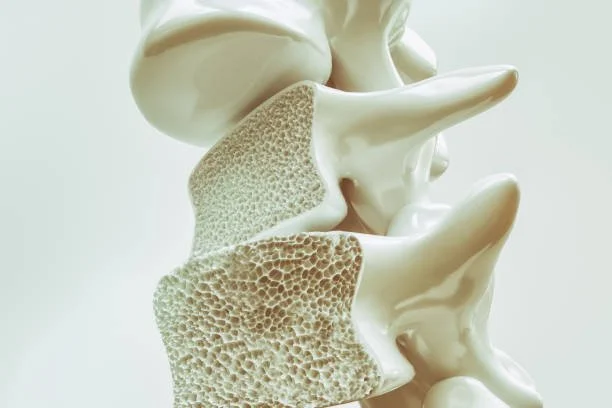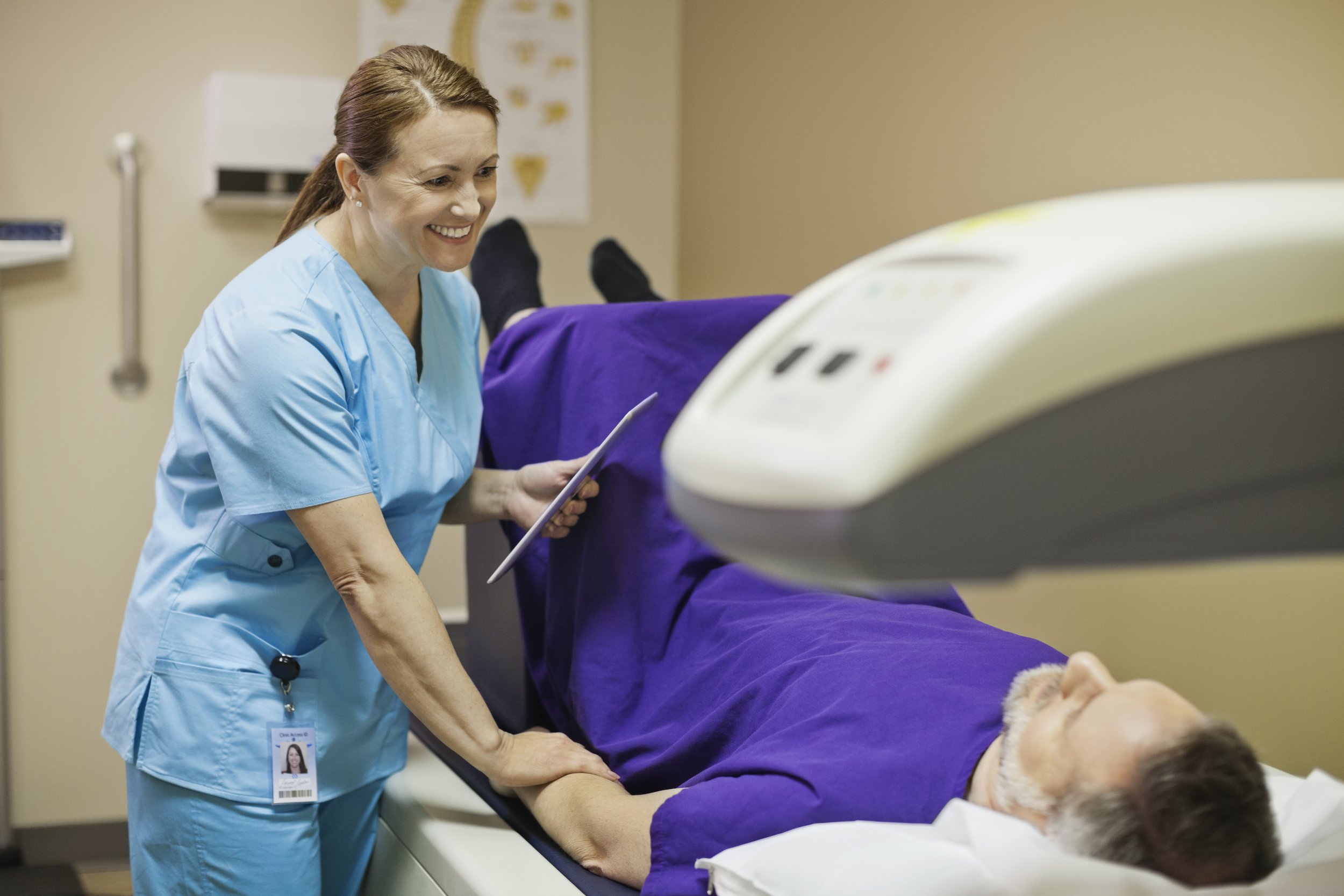bone density scans
At Rezolut, we are early detection champions for Osteoporosis.
More than 54 million Americans suffer from low bone density or osteoporosis, a condition where bones weaken to the extent of breaking. This weakening is often a result of aging or a combination of aging and other factors. Symptoms of osteoporosis typically don't manifest until significant bone strength is lost. Observable signs may include height loss and curvature of the upper back. Additionally, osteoporosis can lead to debilitating and painful fractures, most frequently occurring in the hip, back, or wrist.
A DEXA scan, also known as a bone scan or bone density test, utilizes a method called "dual-energy X-Ray absorptiometry" (DEXA) for assessment.
Bone Density Testing
Rezolut imaging centers are nationally accredited by the American College of Radiology.
We follow their recommendation, along with that of the United States Preventive Task Force (USPTF) with regard to screening for osteoporosis: starting at age 65, women should receive a bone density screening every two years.
A bone density test compares your bone to that of a “young adult” at peak bone strength (T-score):
Normal = above -1
Osteopenic (low bone mass) = -1 to -2.5
Osteoporosis = below -2.5
Your T-score, combined with other risk factors, will enable your healthcare provider to estimate what your risk of a hip fracture or other major osteoporosis-related fracture will be in the next 10 years. This information will help your doctor determine what course of action should be taken. The bone densitometry test is also useful in following bone changes. Your provider may suggest follow-up tests to detect change over time.
THERE ARE IMPORTANT RISK FACTORS TO CONSIDER WHEN THINKING ABOUT OSTEOPOROSIS:
Female
Caucasian
Advanced age
History of bone fracture
Small, thin frame
Family history of osteoporosis
Removal of ovaries
Early menopause
Low calcium diet
Lack of exercise
Eating disorders
Alcohol and tobacco use
Having a conversation with your healthcare provider about your history of broken bones and fractures is a wise decision.
We strongly advise informing your primary healthcare provider about any history of broken bones or fractures. Additionally, it's beneficial to engage in regular discussions regarding diet, exercise, and medication usage.
Remember, you play a crucial role in advocating for your healthcare needs. If you have multiple risk factors to consider, it's important to proactively inquire about a bone scan early on. Don't assume your provider will automatically discuss this option with you.


